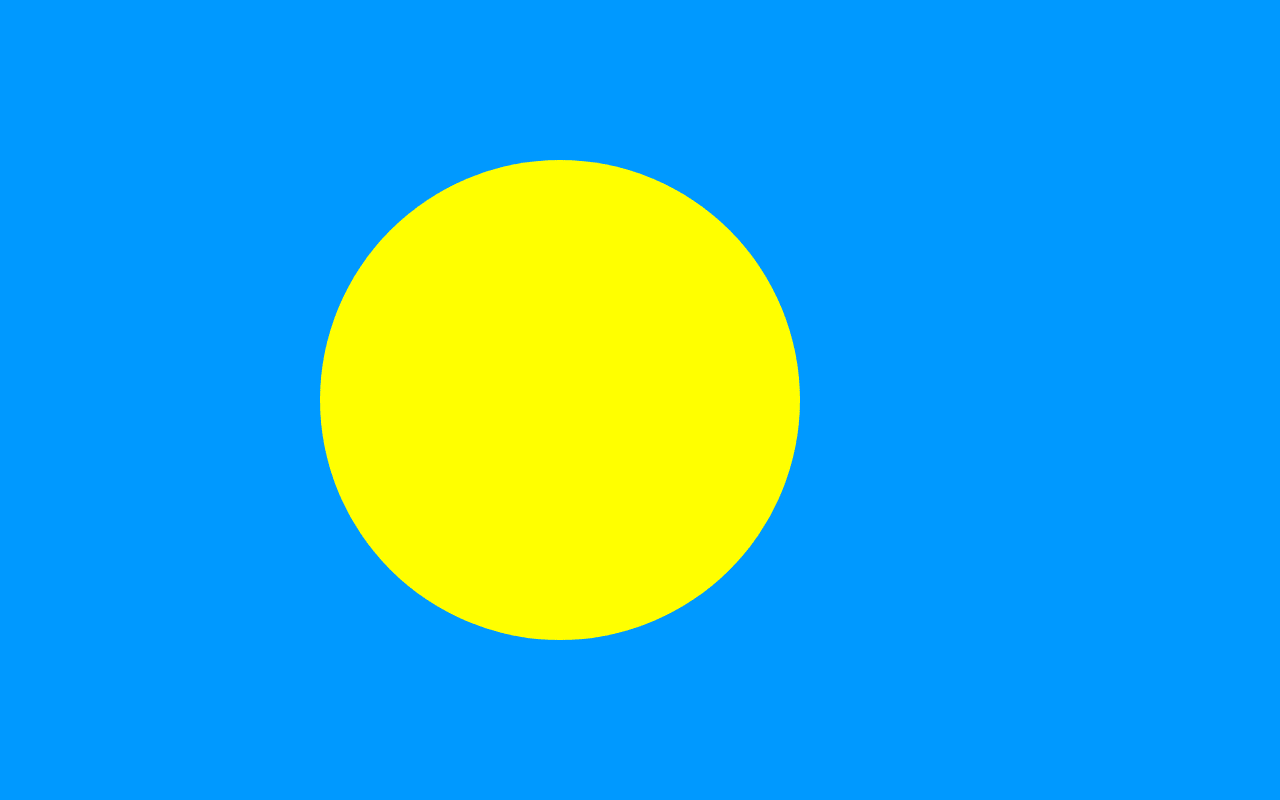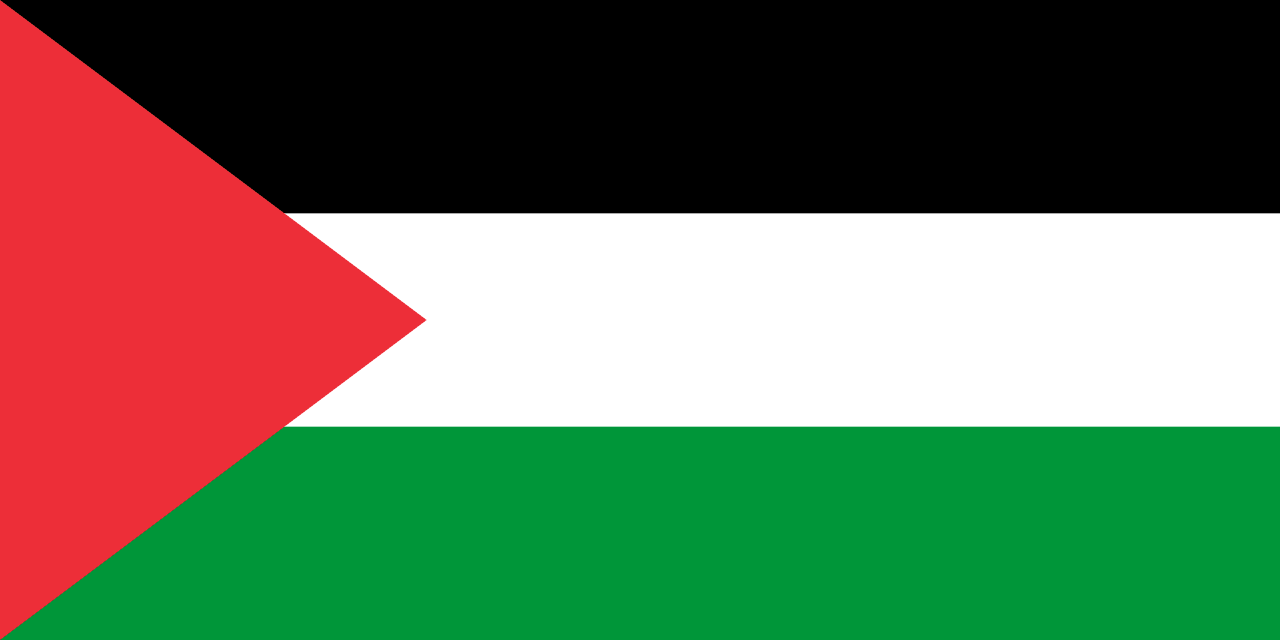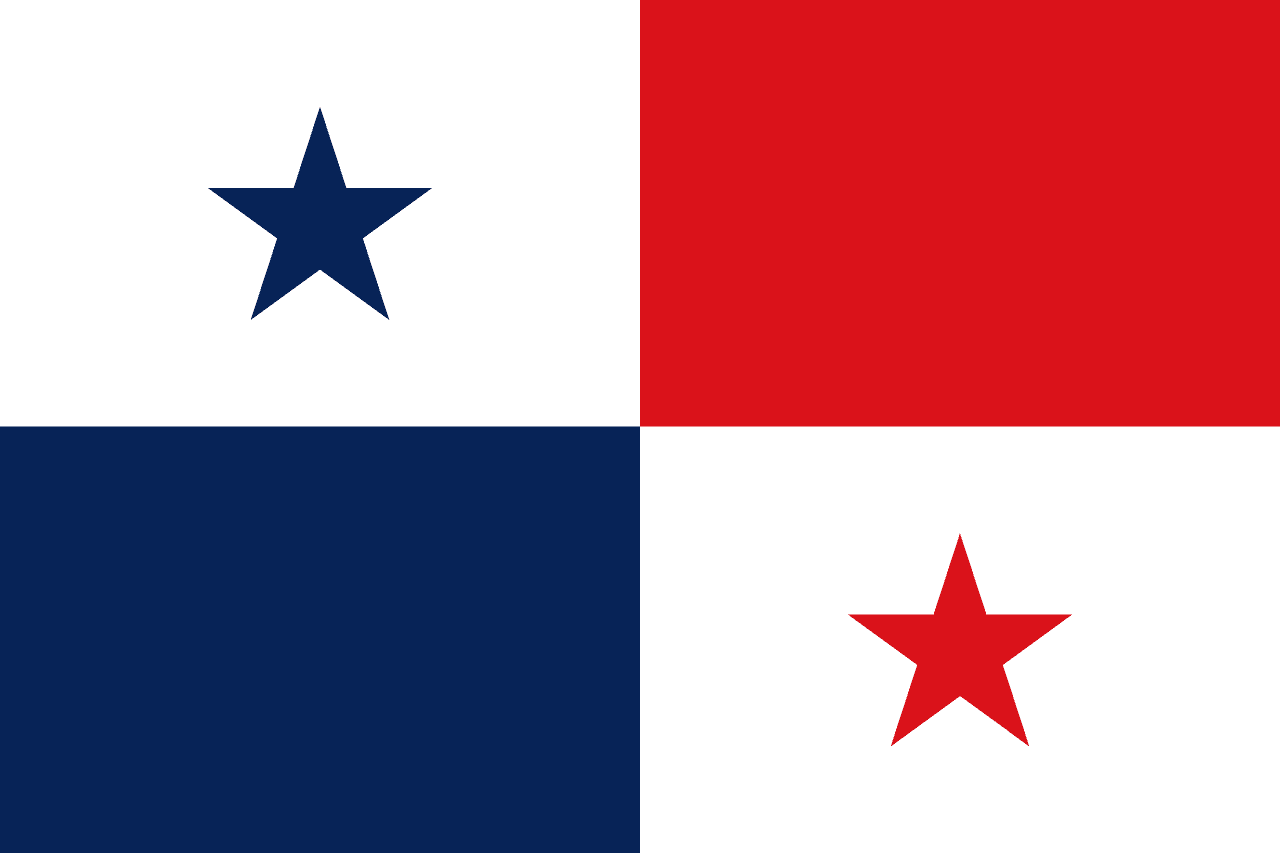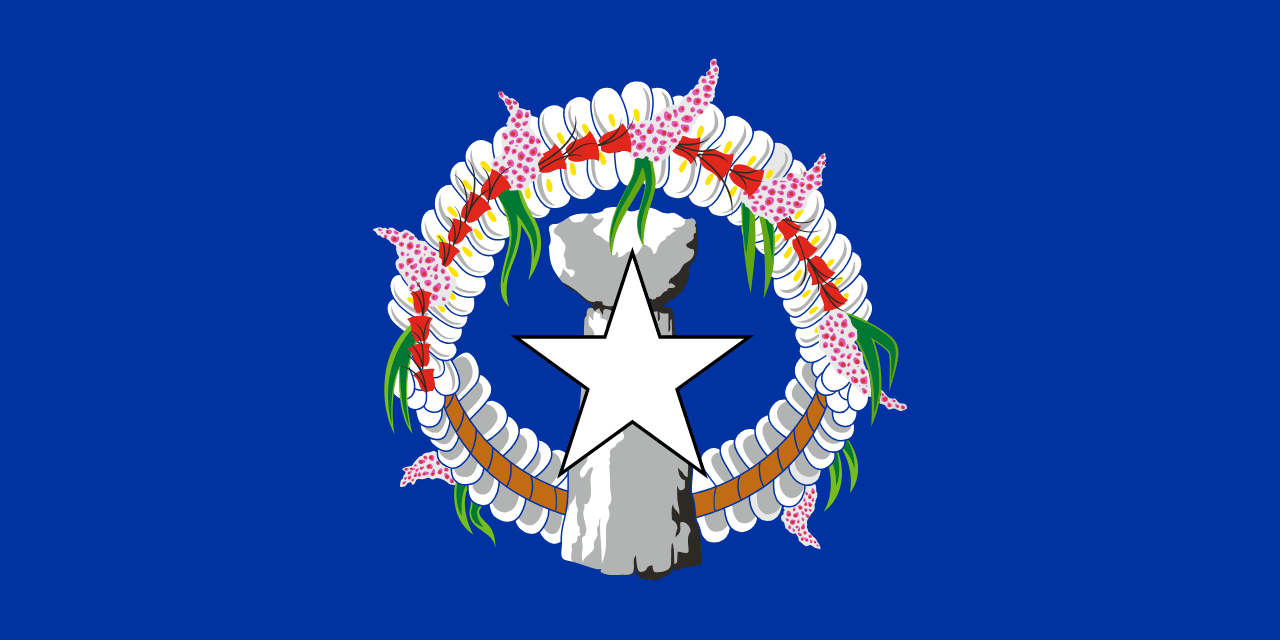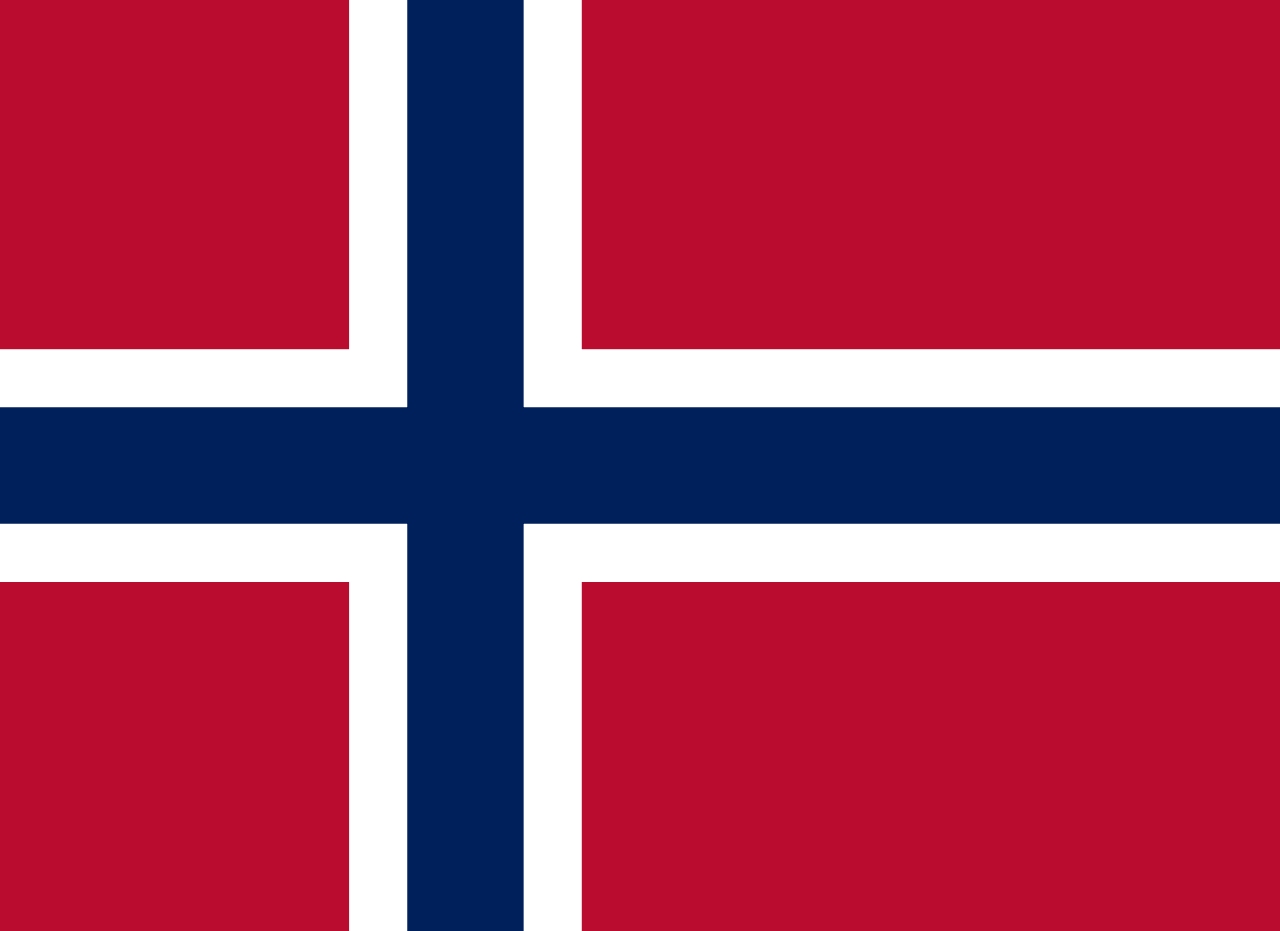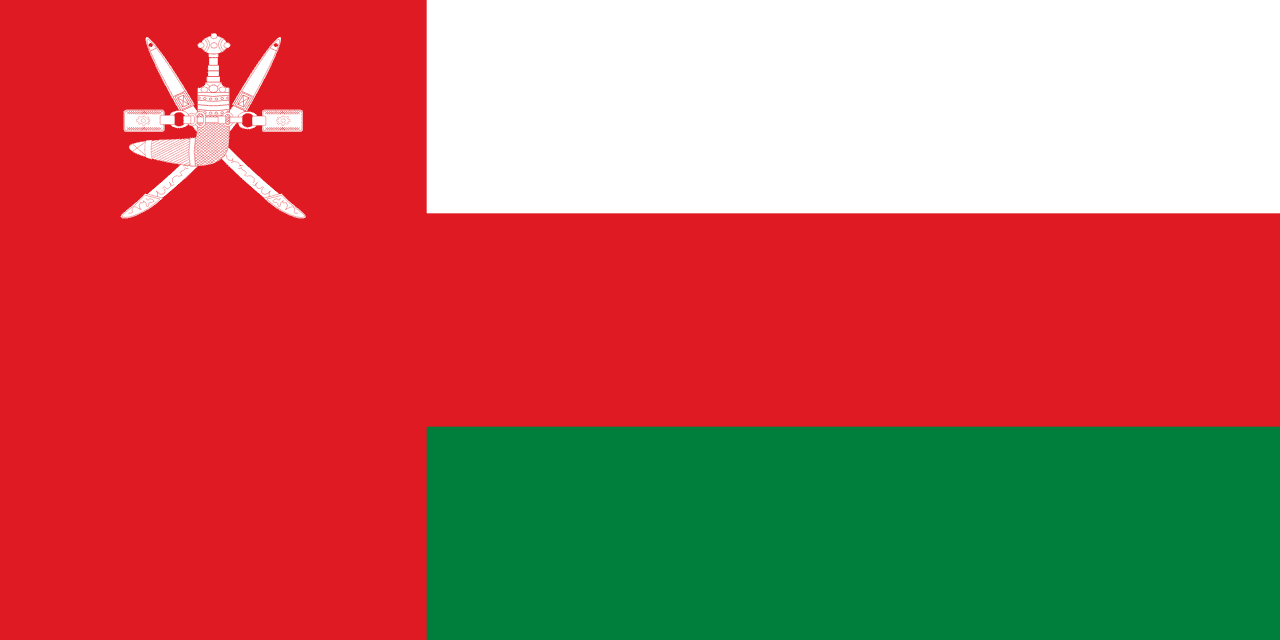La bandera de Pakistán presenta un campo verde oscuro con una luna creciente blanca y una estrella de cinco puntas en su centro, junto a una franja vertical blanca en el lado del asta. Este diseño distintivo encapsula la herencia islámica de Pakistán, sus valores culturales y sus aspiraciones como nación.
Información sobre Pakistán
| Día Nacional de la Bandera | — |
| Estado soberano | Sí |
| Nombre oficial | República Islámica de Pakistán |
| Capital | Islamabad |
| Población | 216,565,318 |
| Área | 796,095 km² |
| Moneda | Rupia pakistaní (PKR) |
| Idioma | Urdu, Inglés |
| Continente | Asia |
| Región | Asia del Sur |
| Subregión | Asia Central |
| Fronteras | Afganistán, Irán, India, China |
| Zona horaria | Hora Estándar de Pakistán (PST) UTC+5 |
| Código de llamada | +92 |
| Dominio de nivel superior | .pk |
Historia de la bandera de Pakistán
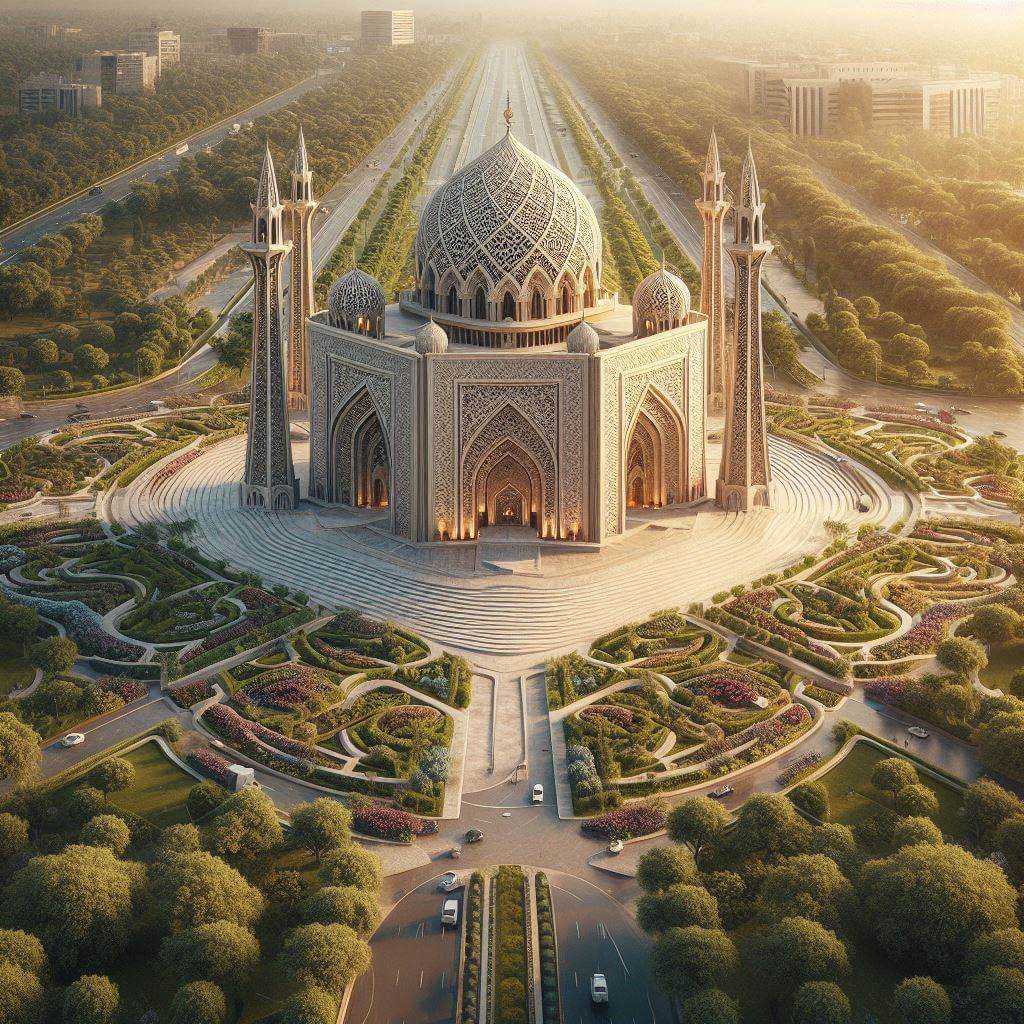 La bandera de Pakistán fue adoptada oficialmente el 11 de agosto de 1947, pocos días antes de que el país obtuviera la independencia del dominio británico el 14 de agosto de 1947. El diseño fue propuesto por Muhammad Ali Jinnah, el fundador de Pakistán, y se basó en la bandera de la Liga Musulmana de Toda la India, el partido político que encabezó el movimiento por un estado musulmán separado en el sur de Asia.
La adopción de la bandera marcó un momento crucial en la historia de Pakistán, simbolizando el nacimiento de una nueva nación y la realización del sueño de una patria musulmana en el subcontinente. Desde su creación, la bandera ha permanecido sin cambios, sirviendo como un recordatorio constante de los principios fundacionales de Pakistán y su camino como nación independiente.
La bandera de Pakistán fue adoptada oficialmente el 11 de agosto de 1947, pocos días antes de que el país obtuviera la independencia del dominio británico el 14 de agosto de 1947. El diseño fue propuesto por Muhammad Ali Jinnah, el fundador de Pakistán, y se basó en la bandera de la Liga Musulmana de Toda la India, el partido político que encabezó el movimiento por un estado musulmán separado en el sur de Asia.
La adopción de la bandera marcó un momento crucial en la historia de Pakistán, simbolizando el nacimiento de una nueva nación y la realización del sueño de una patria musulmana en el subcontinente. Desde su creación, la bandera ha permanecido sin cambios, sirviendo como un recordatorio constante de los principios fundacionales de Pakistán y su camino como nación independiente.
Simbolismo y diseño de la bandera de Pakistán
El diseño de la bandera de Pakistán está lleno de simbolismo, reflejando la identidad islámica del país, sus valores culturales y sus aspiraciones. El campo verde oscuro, que domina la bandera, representa el Islam, la religión mayoritaria de Pakistán. También simboliza la prosperidad, el crecimiento y el patrimonio agrícola del país. La luna creciente blanca y la estrella de cinco puntas son símbolos tradicionales del Islam, representando el progreso y la luz respectivamente. La creciente a menudo se ve como un símbolo de esperanza y el brillante futuro de Pakistán, mientras que la estrella representa el conocimiento y la iluminación que guían a la nación hacia adelante. La franja vertical blanca en el lado del asta tiene un significado particular. Representa a las minorías religiosas de Pakistán, simbolizando el compromiso del país con sus derechos y protección. Esta inclusión refleja la visión de los fundadores de Pakistán de una nación diversa e inclusiva donde todos los ciudadanos, independientemente de su fe, serían miembros iguales de la sociedad. Juntos, estos elementos crean una bandera que encarna las raíces islámicas de Pakistán mientras enfatiza su compromiso con el progreso, el conocimiento y la protección de los derechos de las minorías.
Uso y significado de la bandera de Pakistán
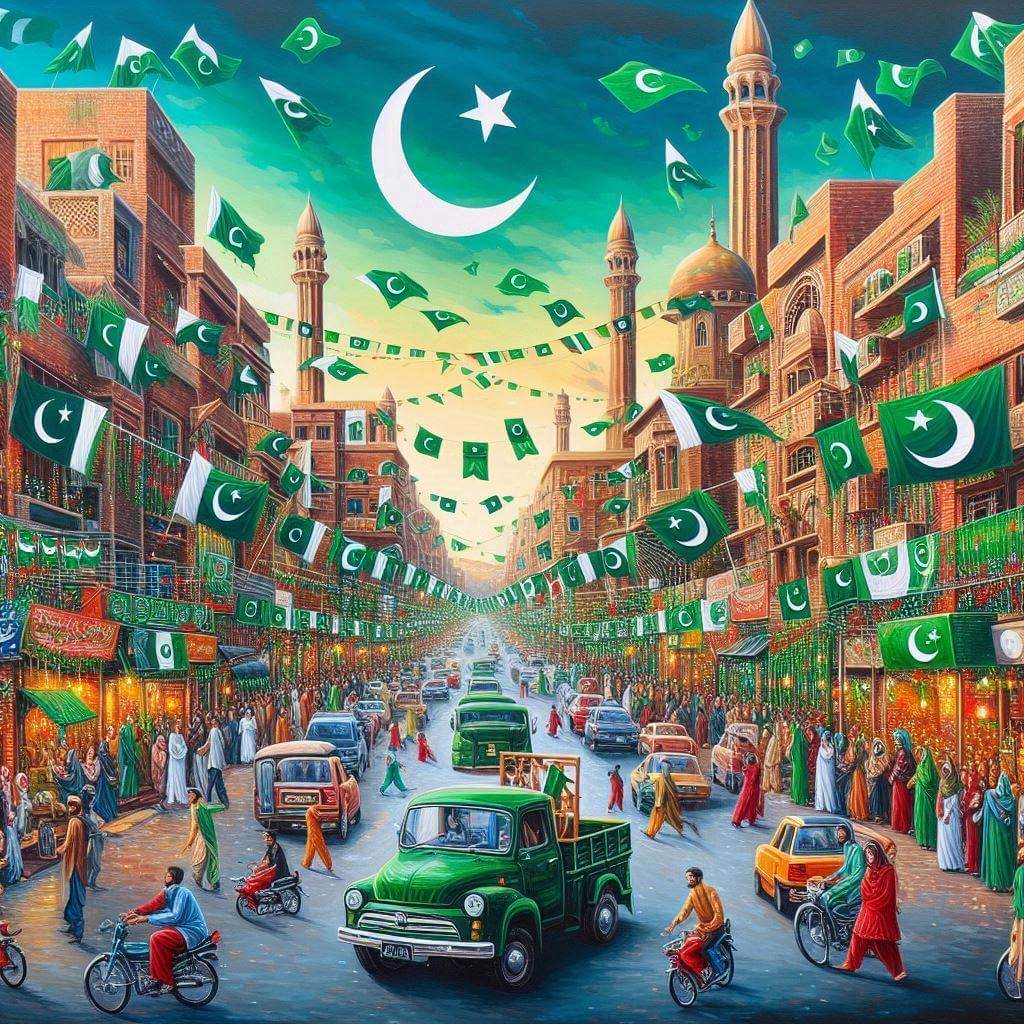 La bandera de Pakistán tiene una inmensa importancia como símbolo de identidad y orgullo nacional. Se muestra prominentemente en edificios gubernamentales, escuelas y durante ceremonias oficiales en todo el país. La bandera juega un papel central en las celebraciones nacionales, particularmente durante el Día de la Independencia el 14 de agosto y el Día de Pakistán el 23 de marzo, cuando ciudades y pueblos de todo Pakistán se adornan con banderas y decoraciones verdes y blancas.
En la vida diaria, la bandera pakistaní es una vista común, a menudo mostrada en vehículos, en tiendas y en reuniones públicas. Sirve como un símbolo unificador para la diversa población de Pakistán, trascendiendo las diferencias regionales, lingüísticas y étnicas.
Internacionalmente, la bandera pakistaní representa al país en funciones diplomáticas, eventos deportivos y foros globales. Simboliza la soberanía de Pakistán, su identidad islámica y su papel en la comunidad internacional. La bandera también es una fuente de orgullo para la diáspora pakistaní en todo el mundo, sirviendo como una conexión con su tierra natal y su patrimonio cultural.
La bandera de Pakistán tiene una inmensa importancia como símbolo de identidad y orgullo nacional. Se muestra prominentemente en edificios gubernamentales, escuelas y durante ceremonias oficiales en todo el país. La bandera juega un papel central en las celebraciones nacionales, particularmente durante el Día de la Independencia el 14 de agosto y el Día de Pakistán el 23 de marzo, cuando ciudades y pueblos de todo Pakistán se adornan con banderas y decoraciones verdes y blancas.
En la vida diaria, la bandera pakistaní es una vista común, a menudo mostrada en vehículos, en tiendas y en reuniones públicas. Sirve como un símbolo unificador para la diversa población de Pakistán, trascendiendo las diferencias regionales, lingüísticas y étnicas.
Internacionalmente, la bandera pakistaní representa al país en funciones diplomáticas, eventos deportivos y foros globales. Simboliza la soberanía de Pakistán, su identidad islámica y su papel en la comunidad internacional. La bandera también es una fuente de orgullo para la diáspora pakistaní en todo el mundo, sirviendo como una conexión con su tierra natal y su patrimonio cultural.
Datos interesantes sobre la bandera de Pakistán
- El tono específico de verde utilizado en la bandera de Pakistán a menudo se refiere como 'verde Pakistán' y es único para esta bandera.
- El diseño de la bandera inspiró la creación del símbolo de la estrella y la creciente utilizado por varios otros países de mayoría musulmana.
- Pakistán tiene leyes estrictas que rigen el uso y la exhibición de su bandera nacional, incluidas regulaciones sobre sus dimensiones y la forma adecuada de izarla y bajarla.
- La bandera humana más grande del mundo fue formada por 29,040 estudiantes pakistaníes en 2014, estableciendo un récord mundial Guinness.
- La bandera a menudo se refiere como 'Parcham-e-Sitara-o-Hilal' en urdu, que significa 'Bandera de la Estrella y la Luna' en referencia a sus elementos simbólicos.
